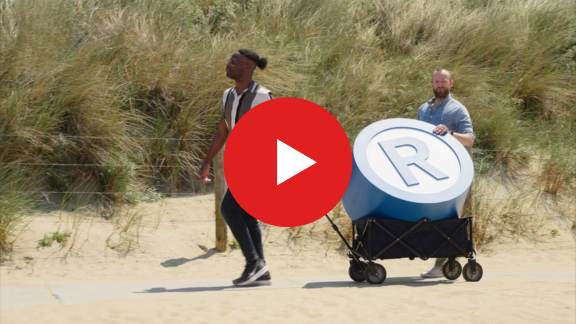Disputes about who is the owner of a trademark arise on a regular basis. It is wise to avoid any disputes about intellectual property rights (IP rights), in case of bankruptcy, but also if you sell your company or cooperate with another company. In this article, we give four tips entrepreneurs should be aware of when recording trademark rights.
IP right disputes in the news:
Just before the summer of 2021, it was reported that the former owners of D-reizen must not be allowed to block the sale of the trademark rights. The curator brought injunction proceedings (kort geding) seeking that the former owners be obliged to cooperate with the sale. This is a special case of course, but such disputes, about who the owner of a trademark is, arise often

You are the owner
A trademark right is what is known as an intellectual property right (an IP right). The name says it all; an IP right is property. You own it. This also means that you can sell the right or give it in license.
A brand name and other IP rights can have considerable significance when companies work together, as well as when a company is sold or re-launched of course. Make sure you record these rights properly and in a timely fashion.
Structure with two private limited companies
Many companies are often set up in a structure with two private limited companies: one is a holding for the valuable assets and one a daughter private limited company. This is done to mitigate risk should the company, like D-reizen, get into difficulties. IP rights are not always included in this structure, whereas, for many entrepreneurs, intellectual property is actually one of their most important assets. It is not just about trademarks either; patents and software or ownership of domain names are also concerned.
What do you need to think about when registering your trademark?
Prepare your registration properly. By doing so, you will reduce the risk of other brands wanting to withhold your registration, or of your application being refused. On our page ‘All about trademarks’ you can read about what you need to take into account when registering your trademark.
What can you do as a sole proprietorship or micro-company?
Are you the owner of a sole proprietorship, or a public or private limited company, or a general partnership? It makes no difference which. Intellectual property can be recorded for any legal entity. Most companies registering trademarks with us directly are sole proprietorships or micro-companies. What do they see as the best choice? Here are four tips:

-
Check whether you have protected your intellectual property rights
First of all, identify which IP rights you have. Have those rights been recorded, or are there contractual agreements in place in their regard? If it is unclear to you what all the existing IP rights are, you can do an ideeSCAN (https://www.ideescan.online/). This will give you a quick insight into what rights you already have and what you still have to arrange.
-
Determine who the owner is
When starting a company, it is often the case that a trademark is registered in the name of the owner. That is not always the most suitable solution, however. It is definitely not when several people are involved in the setting up of the company, or new partners come on board. Imagine that you have a dispute with each other later: who do the rights go to?
This is why it is important to check the name under which the trademark rights are recorded. Are all the rights under the same name? Have any agreements been made with any partners?
Is the legal entity of your company changing, for example from a general partnership to a private limited company? Make sure then that the trademark is included in the process. If it is not taken care of properly, you will not be able to transfer any IP rights later, because, from a legal standpoint, the company – in its previous legal form – will no longer exist.
You can also register a trademark under the name of your company if you have a sole proprietorship. Legally-speaking, you are then the owner. You are then also personally liable in case of any dispute.
-
Do it now
That sounds a little forceful but, whereas as an entrepreneur, in the case of a late delivery, you are still able to sort things out by talking them through, it is not the case with IP rights. Once a dispute arises, you are actually already too late. In some cases, you cannot even make any changes. So don’t wait too long. Do it right now.
-
Contact an expert
Maybe you are a little confused after reading this article. It is a complex matter. BOIP is an independent body. We provide a lot of information about the possibilities for registering trademarks and designs, but we cannot advise you about your personal situation. If you are having difficulty finding your way, there are of course experts who can assist you. An IP professional can advise you on the best way to protect your trademark or design. They can even take care of the whole registration process for you. You can find contact details of specialists at www.bmm.eu.
If you would rather register your trademark or design yourself, you can follow the steps for registration:
Do you want to register your trademark yourself?
Follow the four steps for trademark registration
Do you want to register your design yourself?
Follow the four steps for design registration



